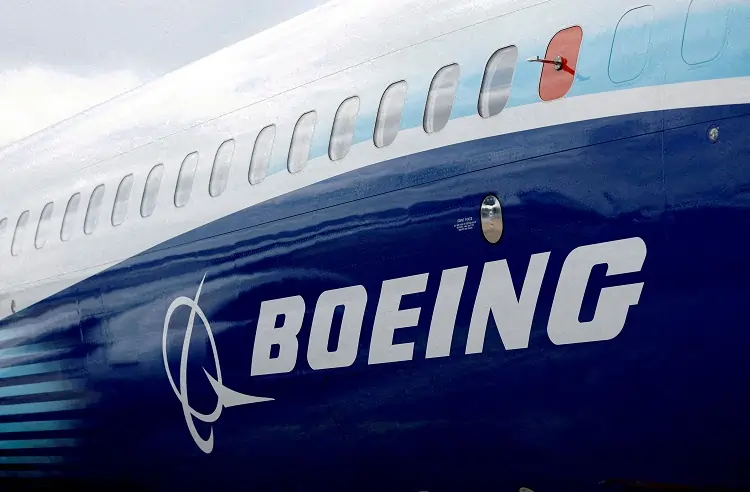
Aviation summit opens amid jet shortages, supply chain turbulence
By Joe Brock and Tim Hepher
FARNBOROUGH, England (Reuters) – Aviation leaders will meet at a marque summit outside London on Monday as the industry struggles with supply chain disruptions, aircraft delays and floundering plans to reduce carbon emissions.
The July 22-26 Farnborough Airshow, a gathering of top executives from airlines, aircraft makers and weapons manufacturers, has often been a festival of orders for passenger jets from Boeing and Airbus.
Many delegates said the show is not expected to produce a flurry of orders as Airbus struggles to reach output goals and Boeing adopts a low-key posture amid its safety crisis, which was triggered by a door panel flying off a 737 MAX jet in January.
Some deals will get over the line, delegates said. Virgin Atlantic is close to placing a top-up order for Airbus A330neos and Flynas, a Saudi low-cost carrier, is poised to order up to 30 of the same widebody aircraft, industry sources said.
Japan Airlines is expected to firm up recent tentative orders for jets and Boeing is seeing leasing interest for its 737 MAX, while Turkish Airlines is in the midst of negotiations to buy Boeing jets, industry sources said. The companies declined to comment.
Industry bosses will also be looking for any further sign of weakness in air passenger demand following a handful of profit warnings from airlines. Ryanair, a low-cost carrier bellwether, will report quarterly results on Monday.
With dealmaking limited, the focus is likely to fall on how to remove supply chain blockages and speed up the delivery of planes to frustrated airlines.
Aviation was hit hard by the pandemic which saw air travel collapse only to bounce back sharply. That has left many firms scrambling to resolve labour and parts shortages.
The situation has been exacerbated by a spiralling crisis at Boeing, which has had to slow down production of its best-selling 737 MAX plane following the door blowout.
Stephanie Pope, Boeing’s head of commercial aircraft, said at a media briefing on Sunday that 737 MAX production was improving and the company was undergoing “transformational change” across safety and corporate culture.
Airbus Chief Executive Guillaume Faury also told journalists on Sunday that the planemaker was making progress ramping up production of its top passenger jets.
POLITICAL TURBULENCE
Aerospace and defence companies, which rely heavily on government-funded programmes, are closely assessing a turbulent political period in Western democracies, with a new Labour government in Britain, a fragmented parliament in France, and an election in the United States in November.
“We are indeed in a world that is changing all the time … very volatile, very unpredictable, and quite challenging for industries,” Faury told reporters on Sunday.
Faury’s comments turned out to be prescient. About an hour later, U.S. President Joe Biden announced he was ending his re-election bid and endorsed Vice President Kamala Harris to replace him.
This week’s air show will be peppered with sustainability panels and workshops as aerospace giants and airlines seek to emphasise their commitment to reducing carbon emissions, even as they plan to massively expand global air travel.
On the defence side, the focus will be on Ukraine, possible delays to America’s future F-22 fighter replacement, code-named NGAD, and a defence review by Britain’s new Labour government.
British Prime Minister Kier Starmer is expected to attend the airshow on Monday. Defence executives will be looking for any signals about what impact Labour’s review could have on their programmes.
(Reporting by Joe Brock, Tim Hepher, Joanna Plucinska, David Shepardson and Allison Lampert; Editing by Stephen Coates)


